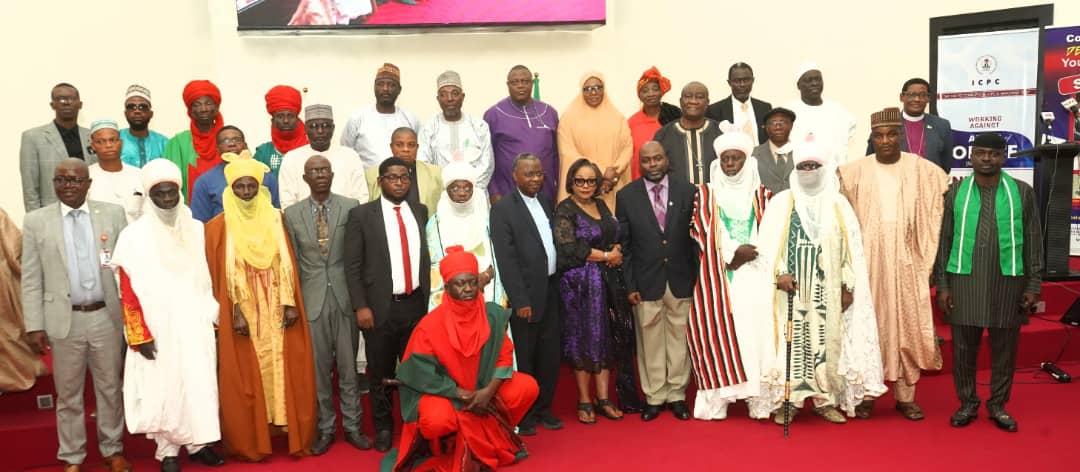The Independent Corrupt Practices and Other Related Offences Commission (ICPC) has admonished traditional rulers, religious leaders, and civil society organisations in the country to help effect behavioural change amongst their subjects as part of their contribution to the fight against corruption.
The Chairman of ICPC, Professor Bolaji Owasanoye SAN, gave this charge in his keynote address at a one-day sensitization dialogue with traditional rulers, religious leaders and civil society organisations in the Federal Capital Territory, Abuja.
Professor Owasanoye, who described traditional and religious leaders and community based civil society groups as character moulders, noted that without combining behavioural change advocacy, much may not be achieved in the fight against corruption hence the need for the input of these stakeholders in the society.
“As religious leaders, you our Pastors and Imams, are not only spiritual guides but also moral compasses by which we measure the positive growth or otherwise of the society. As players in civil society, you are leaders in your own right with the task of standing as the voice of the voiceless to call the attention of relevant authorities to the plight and conditions of the ordinary people of our rural communities”.
The ICPC boss who maintained that the country was blessed with a lot of good people with a few bad eggs, urged the traditional and religious rulers to use their influence to support ICPC and other stakeholders in ensuring the promotion of the National Ethics and Integrity Policy, launched by President Muhammadu Buhari in September 2020.
He also charged them to be mindful of checking the constituency projects sited in their communities saying they had the right to ask questions or call the attention of ICPC when they are not satisfied with the states of the projects.
In her paper titled: “Advancing the Core Values of the National Ethics and Integrity Policy for Behavioural Change: The Role of Traditional Rulers and Religious Leaders” the spokesperson of ICPC, Azuka Ogugua explained the seven core values of the policy and how traditional and religious leaders could get involved.
On his part, the ICPC Deputy Director in the Constituency and Executive Tracking Division, Mr. Jimoh Sulahiman, identified how religious and traditional rulers can play a huge role in ensuring value for money in the constituency projects budgeted for their communities.
He said influencers such as traditional rulers, religious leaders, and civil society organisations were to closely monitor corrupt practices and transparency issues which have become rampant in the delivery of public projects in their various communities and cause change to happen by reporting observed sharp practices to ICPC.
“Participate in the governance process, engage your representatives in project determination. Do not confer undue advantages such as chieftaincy titles or positions on those you are expected to demand accountability and transparency from in the discharge of their service to your communities. By virtue of your positions, you are GOLD (if gold should rust, what would the iron do?)” he stated.
The programme had in attendance the Primate of the Anglican Communion in Nigeria, His Grace Henry C. Ndukuba, as well as representatives of the Nigerian Supreme Council of Islamic Affairs (NSCIA), Christian Association of Nigeria (CAN), traditional rulers, civil society organizations and youth groups.


